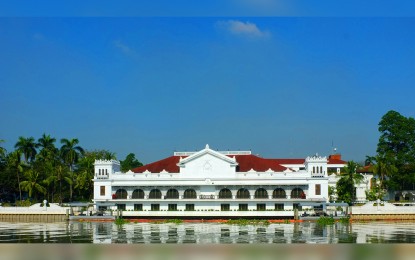
MANILA – It would be difficult for the International Criminal Court (ICC) to build a strong case against President Rodrigo Duterte for alleged commission of crime against humanity in the context of his anti-narcotics drive, Malacañang said on Tuesday.
In an online press conference, Presidential Spokesperson Harry Roque believes the ICC would have a hard time finding evidence against Duterte since the Philippine government has no plan to cooperate with the international tribunal.
“The ICC can do whatever it wants,” Roque said. “Alam din po ng ICC (ICC knows that) without cooperation from the state, napakahirap po ng (it would be very difficult to have a) case build up because all criminal cases, even in the ICC and most especially in the ICC, must present real evidence and not just newspaper reports.”
The ICC, in its official website, has called on the families of victims of Duterte’s drug war to come forward and submit their concerns over the request to proceed with the investigation.
The ICC is asking for details about what happened to the victims, who the victims believe to be responsible, and when and where the incident happened.
The deadline for the submission of victim representations to the ICC is on August 13 this year.
Fatou Bensouda, whose term as ICC prosecutor ended on June 15, has sought authorization from the court’s pre-trial chamber to allow the conduct of an investigation into the alleged crime against humanity during the Duterte administration’s anti-narcotics campaign.
Bensouda said there is a “reasonable” basis to believe that “the crime against humanity of murder was committed from at least 1 July 2016 to 16 March 2019 in the context of the Philippine government’s war on drug’s campaign”.
She added that police and other government officials “planned, ordered, and sometimes directly perpetrated extrajudicial killings”.
Duterte ordered in March 2018 the Philippines’ withdrawal from the Rome Statue that created the ICC after Bensouda pushed through with the preliminary examination into his anti-illegal drugs campaign in February 2018.
The Philippines officially cut ties with the ICC on March 17, 2019, or exactly a year after Duterte revoked the Rome Statute.
Duterte and other Philippine officials have repeatedly insisted that ICC has no jurisdiction over the Philippines since the Rome Statute was never published in a newspaper of general circulation or the Official Gazette.
On June 25, Duterte acknowledged that the drug problem, which is a “never-ending one,” can put the country under the control of the narco-politicians, if not resolved.
Drug law enforcement agencies have conducted around 200,632 anti-illegal drug operations, resulting in the arrest of 289,622 drug users and sellers, and death of 6,117 people since July 1, 2016, according to the government’s #RealNumbersPH data as of April 30, 2020.
Duterte also reiterated that his fight against illegal drugs would remain relentless, but stressed that responding police officers must perform their duty in accordance with law. (PNA)
